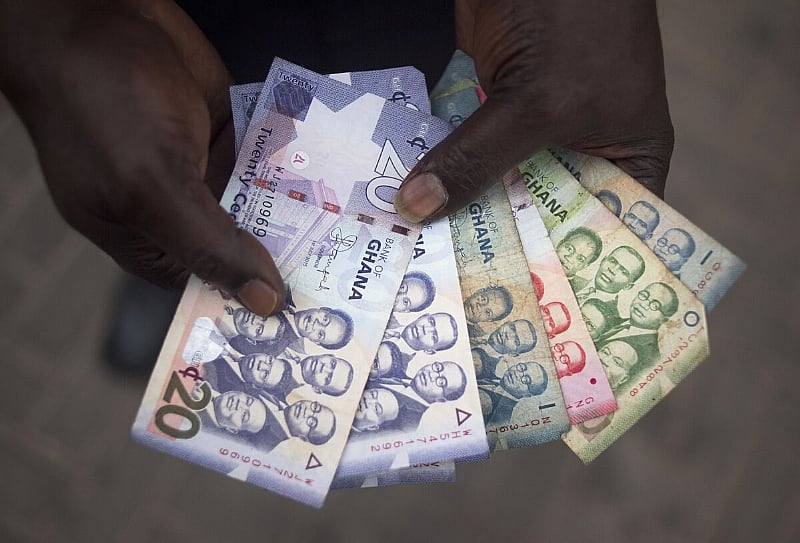The recent appreciation of the Ghanaian cedi against major international currencies has sparked a debate about its underlying causes and sustainability. Financial analyst Kwaku Adoboli contends that the cedi’s gains are primarily a result of extensive foreign exchange interventions by the Bank of Ghana (BoG), a view supported by a report from the Institute of Economic Research and Public Policy (IERPP). Adoboli argues that while these interventions provide a temporary reprieve from depreciation, they are not a sustainable solution without accompanying structural economic reforms. He warns that relying solely on interventions risks depleting foreign reserves and potentially triggering a vicious cycle of devaluation and inflation. This creates uncertainty about the long-term stability of the cedi, especially if the interventions are not complemented by measures to address the root causes of currency weakness.
The IERPP report provides data that seemingly corroborates Adoboli’s concerns. The report indicates that the BoG spent approximately $4.4 billion on foreign exchange interventions to bolster the cedi. While Ghana experienced a substantial increase in both exports and gross reserves during the period under review, the report suggests that a significant portion of these inflows were used to defend the local currency rather than being accumulated as reserves. Specifically, the report highlights a rise in exports from $4.3 billion to $13.8 billion and an increase in gross reserves from $6.0 billion to $11.1 billion. The IERPP posits that the “missing” $4.4 billion represents the funds channeled into the foreign exchange market to support the cedi, thus preventing further depreciation. This raises questions about the long-term implications of using export earnings and reserve accumulation for currency stabilization rather than investing in broader economic development.
The core of Adoboli’s argument lies in the unsustainable nature of relying solely on foreign exchange interventions. He explains that these interventions involve the BoG selling significant amounts of foreign currency, primarily US dollars, to increase its supply in the market, thereby influencing the exchange rate. While this can temporarily strengthen the cedi, it’s not a sustainable long-term strategy. If the underlying economic fundamentals that contribute to currency weakness are not addressed, the demand for foreign currency will persist, requiring continued interventions. This can drain the BoG’s foreign reserves, ultimately weakening its ability to defend the cedi and potentially leading to a sharper depreciation in the future.
Furthermore, Adoboli cautions about the risks associated with depleting foreign reserves beyond a certain point. He notes that excessive interventions can lead to a situation where the amount of foreign currency being sold exceeds the available reserves. This can create instability and trigger a loss of confidence in the currency, potentially leading to a downward spiral of further devaluation and inflation. The lack of structural reforms to address the underlying economic challenges amplifies these risks, making the cedi vulnerable to external shocks and undermining its long-term stability.
In contrast to Adoboli’s and the IERPP’s analysis, the Governor of the Bank of Ghana, Dr. Johnson Pandit Asiamah, maintains that the cedi’s appreciation is not artificial. He attributes the positive trend to the implementation of tight fiscal policies. This suggests a difference in perspective on the primary drivers of the cedi’s recent performance. While the Governor emphasizes the role of fiscal discipline, Adoboli and the IERPP highlight the significant impact of foreign exchange interventions, questioning their long-term efficacy in the absence of broader structural reforms.
The divergent viewpoints underscore the complexities of managing exchange rates and the importance of a multifaceted approach to achieving sustainable currency stability. While fiscal discipline undoubtedly plays a crucial role, addressing structural issues such as export diversification, import substitution, and productivity improvements is equally important for long-term economic health. The debate highlights the need for a comprehensive strategy that combines sound fiscal policies with structural reforms to strengthen the Ghanaian economy and ensure the cedi’s stability in the long run. Relying solely on interventions, as Adoboli warns, might provide temporary relief but risks exacerbating the underlying issues and creating greater instability in the future. A more holistic approach is required to address the root causes of currency weakness and build a more resilient and robust economy.


